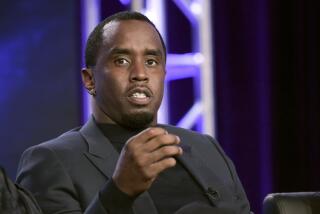Indictments Near in Futures Exchange Probe
- Share via
CHICAGO — Dozens of traders face the first round of indictments this week in the federal undercover probe of the nation’s two largest futures exchanges, newspaper accounts published Sunday said.
Federal prosecutors met with traders’ defense attorneys Friday and Saturday outlining the case against them and giving them a final opportunity to plead guilty and testify against other traders, the Chicago Sun-Times reported.
The first indictments, with as many as 50 traders expected to be named this week, followed a two-year undercover probe in which FBI agents disguised as traders secretly tape-recorded conversations in the boisterous pits. They allegedly uncovered fraudulent trading schemes through which brokers bilked customers and each other out of millions of dollars.
Tapes Admissible
A federal judge in Chicago ruled Friday that the secretly recorded tapes of random conversations in the pits at the Chicago Board of Trade and the Chicago Mercantile Exchange, the world’s largest futures exchanges, were admissible as evidence.
One defense attorney had argued that the tapes be excluded because they contained third-party conversations that violated traders’ privacy.
Defense attorneys were informed by prosecutors that traders targeted in the probe will face charges under the Racketeer Influenced and Corrupt Organizations Act, or RICO, under which assets including homes and bank accounts may be frozen and eventually seized if earned illegally, the newspaper said.
Using RICO will allow prosecutors to implicate several traders in the same pit all at once, charging them with conducting a criminal enterprise.
The two giant exchanges offer traders arenas in which to hedge and speculate on scores of commodities ranging from U.S. Treasury Bonds to pork bellies.
The four pits targeted by the inquiry reportedly include the Board of Trade’s soybean and Treasury bond pits, and the Mercantile Exchange’s Swiss franc and Japanese yen currency futures pits.
Many more traders, brokers and commodity firm executives may eventually be charged in the inquiry, which first came to light in January, sources close to the investigation have said.
More to Read
Inside the business of entertainment
The Wide Shot brings you news, analysis and insights on everything from streaming wars to production — and what it all means for the future.
You may occasionally receive promotional content from the Los Angeles Times.










